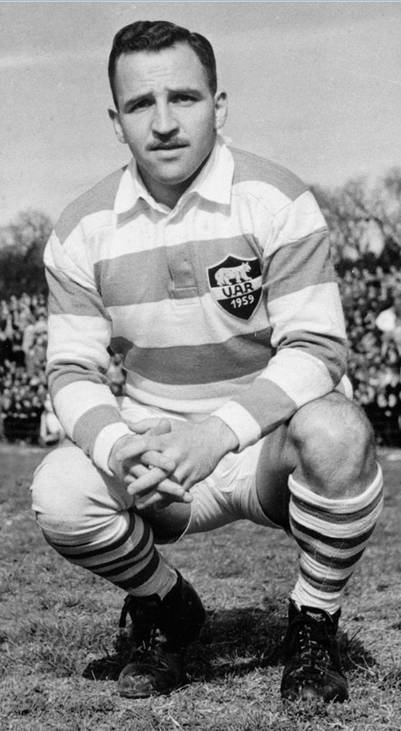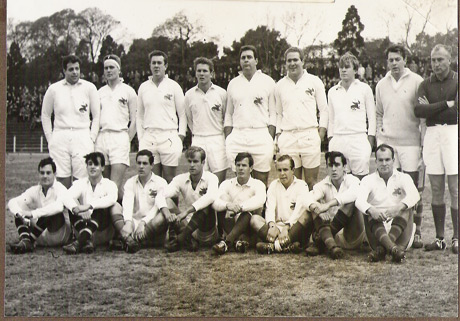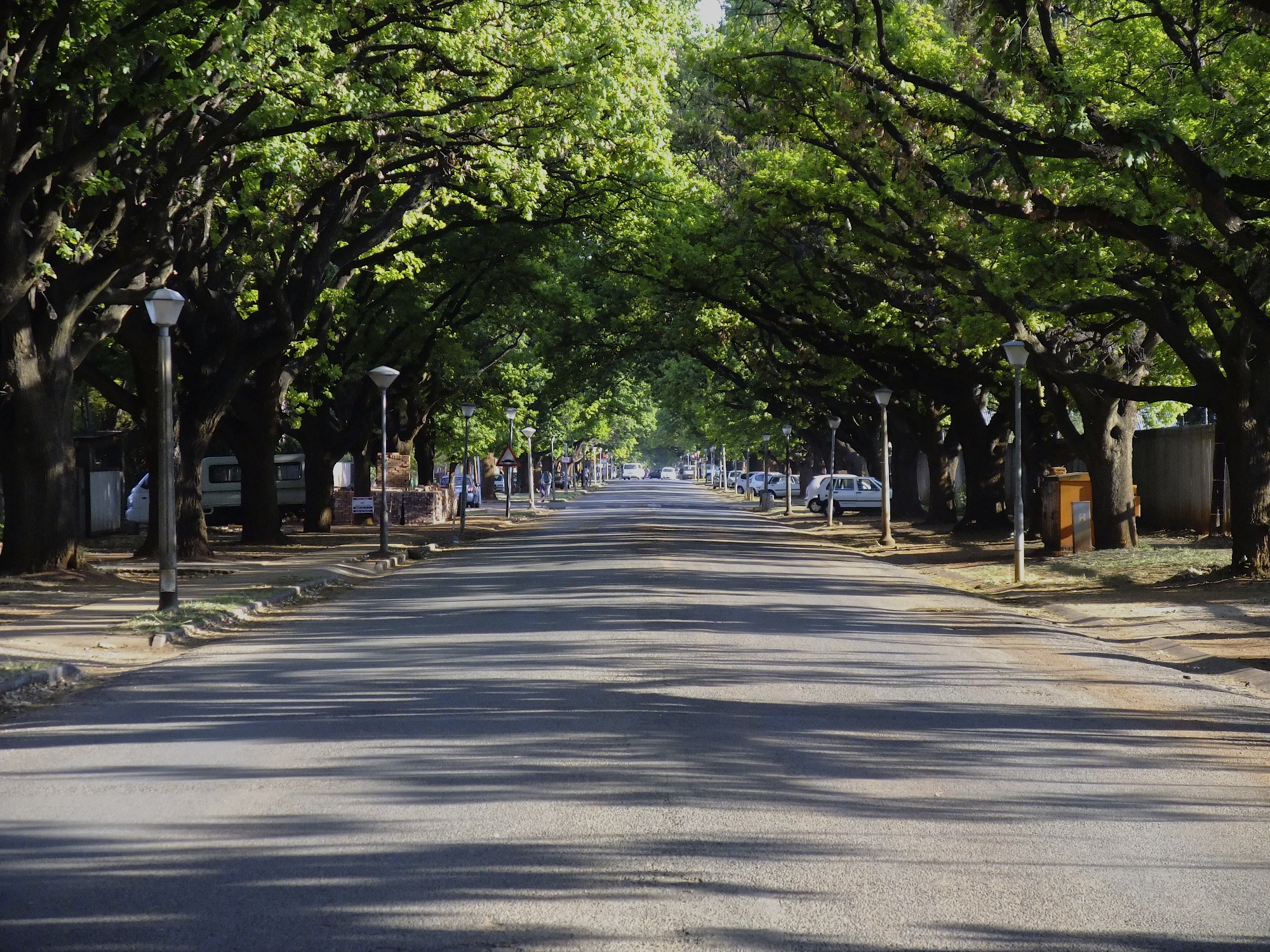|
1965 Argentina Rugby Union Tour Of Rhodesia And South Africa
The 1965 Argentina rugby union tour of South Africa and Rhodesia was a series of 16 matches played by the Argentina national rugby union team, Argentina national team in May and June 1965 in Rhodesia and South Africa. That tour was meaningful and relevant for Rugby union in Argentina, Argentine rugby as it saw the birth of the team's nickname (''Pumas''), which has identified the national team since, following the victory over the South Africa A national rugby union team, Junior Springboks at Ellis Park Stadium, Ellis Park. That win was considered historic not only for the Argentine national team but for the sport in the country.El día que nacieron Los Pumas ''El Gráfico'' [...More Info...] [...Related Items...] OR: [Wikipedia] [Google] [Baidu] |
South Africa A National Rugby Union Team
South Africa 'A', also formerly known as the Junior Springboks or the Emerging Springboks, are the second national rugby union team representing South Africa, below the senior national team, the Springboks. Until 2018, it was also under the South Africa Under-20 team in the country's rugby hierarchy, but World Rugby changed its regulations to prohibit unions from designating an under-20 team as its second 15-a-side team. They competed in the Nations Cup in 2007 and 2008 alongside the full national teams of Namibia, Romania and Georgia as well as Argentina Jaguars and Italy A. They also sporadically play touring sides such as the British and Irish Lions. The team is made up of players of all ages and is not a youth side. The selection criteria vary, and it has been used most recently to give potential Springboks a taste of international rugby or to give experienced Springboks playing time to improve fitness or form. Current squad South Africa A squad to face the British & ... [...More Info...] [...Related Items...] OR: [Wikipedia] [Google] [Baidu] |
Old Georgian Club
Old Georgian Club is an Argentina, Argentine sports club. Although headquartered in Buenos Aires, most of Old Georgian's facilities and venue are located on Quilmes. Founded in 1908 by alumni of St. George's College, Quilmes, St. George's College of Quilmes, the club sees itself as a pillar of Buenos Aires' Great Britain, British community. The rugby union team currently competes in Primera C, the fourth division of the Unión de Rugby de Buenos Aires, URBA league system, while its field hockey teams are affiliated to the Buenos Aires Hockey Association. Other sections of the club are basketball, and association football, football. In cricket, Old Georgian was member of the Asociación Argentina de Cricket, Argentine Cricket Association and played in the national league. Many old Georgians have played for the Argentina national cricket team, Argentina national team. History On April 28, 1908, headmaster of St. George's college Joseph Stevenson, and sixteen alumni established Old ... [...More Info...] [...Related Items...] OR: [Wikipedia] [Google] [Baidu] |
Potchefstroom
Potchefstroom (, colloquially known as Potch) is an academic city in the North West Province of South Africa. It hosts the Potchefstroom Campus of the North-West University. Potchefstroom is on the Mooi Rivier (Afrikaans for "pretty river"), roughly west-southwest of Johannesburg and east-northeast of Klerksdorp. Etymology Several theories exist about the origin of the city's name. According to one theory, it originates from ''Potgieter'' + ''Chef'' + ''stroom'' (referring to Voortrekker leader and town founder Andries Potgieter; "chef" indicates the leader of the Voortrekkers, and "stroom" refers to the Mooi River). Geoffrey Jenkins writes, "Others however, attribute the name as having come from the word 'Potscherf', meaning a shard of a broken pot, due to the cracks that appear in the soil of the Mooi River Valley during drought resembling a broken pot". M. L. Fick suggests that Potchefstroom developed from the abbreviation of "Potgieterstroom" to "Potgerstroom", whic ... [...More Info...] [...Related Items...] OR: [Wikipedia] [Google] [Baidu] |
Blue Bulls
The Blue Bulls (known for sponsorship reasons as the Vodacom Blue Bulls) is a South African rugby union team that participates in the annual Currie Cup tournament. They are governed by the Blue Bulls Rugby Union and are based at Loftus Versfeld Stadium in Pretoria, Gauteng province. In 1997 the Northern Transvaal team, representing the Northern Transvaal Rugby Union (NTRU), was renamed, officially taking on their then nickname the Blue Bulls. The NTRU itself became the Blue Bulls Rugby Union and the United Rugby Championship team operated by the union was renamed simply the Bulls (rugby), Bulls. When Vodacom became the team's major sponsor their name was added. Previously the side was sponsored by ExxonMobil and known as the Mobil Blue Bulls. Their main colour is blue and their emblem a bull's head and horns. History Northern Transvaal The team as it is known today has its beginnings in 1938 when the then Northern Transvaal Rugby Union broke away from the Transvaal Rugby Fo ... [...More Info...] [...Related Items...] OR: [Wikipedia] [Google] [Baidu] |
Harare
Harare (; formerly Salisbury ) is the capital and most populous city of Zimbabwe. The city proper has an area of 940 km2 (371 mi2) and a population of 2.12 million in the 2012 census and an estimated 3.12 million in its metropolitan area in 2019. Situated in north-eastern Zimbabwe in the country's Mashonaland region, Harare is a metropolitan province, which also incorporates the municipalities of Chitungwiza and Epworth. The city sits on a plateau at an elevation of above sea level and its climate falls into the subtropical highland category. The city was founded in 1890 by the Pioneer Column, a small military force of the British South Africa Company, and named Fort Salisbury after the UK Prime Minister Lord Salisbury. Company administrators demarcated the city and ran it until Southern Rhodesia achieved responsible government in 1923. Salisbury was thereafter the seat of the Southern Rhodesian (later Rhodesian) government and, between 1953 and 1963, th ... [...More Info...] [...Related Items...] OR: [Wikipedia] [Google] [Baidu] |
Zimbabwe
Zimbabwe (), officially the Republic of Zimbabwe, is a landlocked country located in Southeast Africa, between the Zambezi and Limpopo Rivers, bordered by South Africa to the south, Botswana to the south-west, Zambia to the north, and Mozambique to the east. The capital and largest city is Harare. The second largest city is Bulawayo. A country of roughly 15 million people, Zimbabwe has 16 official languages, with English, Shona language, Shona, and Northern Ndebele language, Ndebele the most common. Beginning in the 9th century, during its late Iron Age, the Bantu peoples, Bantu people (who would become the ethnic Shona people, Shona) built the city-state of Great Zimbabwe which became one of the major African trade centres by the 11th century, controlling the gold, ivory and copper trades with the Swahili coast, which were connected to Arab and Indian states. By the mid 15th century, the city-state had been abandoned. From there, the Kingdom of Zimbabwe was established, fol ... [...More Info...] [...Related Items...] OR: [Wikipedia] [Google] [Baidu] |
Pumas Try 1965
Puma or PUMA may refer to: Animals * ''Puma'' (genus), a genus in the family Felidae ** Puma (species) or cougar, a large cat Businesses and organisations * Puma (brand), a multinational shoe and sportswear company * Puma Energy, a mid- and downstream oil company * People United Means Action, originally named "Party Unity My Ass", a political action committee during the 2008 U.S. presidential election Languages * Puma language, a language of Nepal * Teanu language or Puma, a language of the Solomon Islands People * Carlos Landín Martínez, El Puma, Mexican drug lord * José Luis Rodríguez (born 1943), El Puma, Venezuelan singer and actor * Puma King (born 1990), Puma, Mexican wrestler * Puma Swede (born 1976), Swedish pornographic actress * Ricochet (wrestler) (born 1988), Puma, American wrestler * T. J. Perkins (born 1984), Puma, American wrestler * Puma Jones member of Black Uhuru Places * Puma (village), Solomon Islands * Puma (Tanzanian ward) Sports * Pumas ... [...More Info...] [...Related Items...] OR: [Wikipedia] [Google] [Baidu] |
Pumas Queenston 1965
Puma or PUMA may refer to: Animals * ''Puma'' (genus), a genus in the family Felidae ** Puma (species) or cougar, a large cat Businesses and organisations * Puma (brand), a multinational shoe and sportswear company * Puma Energy, a mid- and downstream oil company * People United Means Action, originally named "Party Unity My Ass", a political action committee during the 2008 U.S. presidential election Languages * Puma language, a language of Nepal * Teanu language or Puma, a language of the Solomon Islands People * Carlos Landín Martínez, El Puma, Mexican drug lord * José Luis Rodríguez (born 1943), El Puma, Venezuelan singer and actor * Puma King (born 1990), Puma, Mexican wrestler * Puma Swede (born 1976), Swedish pornographic actress * Ricochet (wrestler) (born 1988), Puma, American wrestler * T. J. Perkins (born 1984), Puma, American wrestler * Puma Jones member of Black Uhuru Places * Puma (village), Solomon Islands * Puma (Tanzanian ward) Sports * Pumas ... [...More Info...] [...Related Items...] OR: [Wikipedia] [Google] [Baidu] |
Héctor Silva (rugby Union)
Héctor Luis Silva (1 July 1945 – 17 May 2021) was an Argentine rugby union footballer and coach, who coached Argentina in the 1987 Rugby World Cup. Biography Between 14 and 18 years, he played rugby and basketball; he practiced rugby in the youth team of his city, Rugby Club Los Tilos from La Plata, and at 18 years he was in the first team; at 20 years, in 1965, he debuted for Argentina in a test match against the Junior Springboks in South Africa, during a tour which saw 11 wins in 16 matches. Becoming captain for Argentina in 1967, he was excluded from the national team in 1971 due to Silva accepting to appear in a television advertisement; even if he was not formally suspended, he was not called up until 1977. In 1980, he was part of the South America XV which took part in South Africa and ended his international career in August against a World XV in Buenos Aires. Three years later he took the lead of Tilos and later he was called to coach Argentina national ... [...More Info...] [...Related Items...] OR: [Wikipedia] [Google] [Baidu] |
Guillermo Mc Cormick
Guillermo Mc Cormick (1938–2005) was an Argentine rugby union player. His position on the field was prop. Mc Cormick's entire career was in Belgrano Athletic Club, having also played for the Argentina national team. In 1965, was part in the historic tour by Rhodesia and South Africa. Career In 1959, Mc Cormick began his career playing for the club Belgrano, where he won four titles. He also was member of the executive committee of Belgrano club, and was his youth coach. He had his first test match in the 1964 South American Rugby Championship, tournament played in São Paulo. On August 19, 1964, Mc Cormick debuted on the national team, scoring a try against Brazil, in the Argentina's victory by 30–5. In 1965, Guillermo Mc Cormick participated in the successful tour by South Africa South Africa, officially the Republic of South Africa (RSA), is the Southern Africa, southernmost country in Africa. It is bounded to the south by of coastline that stretch along the A ... [...More Info...] [...Related Items...] OR: [Wikipedia] [Google] [Baidu] |
South American Jaguar
The South American jaguar is a jaguar (''Panthera onca'') population in South America. Though a number of subspecies of jaguar have been proposed for South America, morphological and genetic research did not reveal any evidence for subspecific differentiation. Taxonomic history Initially, a number of subspecies were described for South America: * ''Panthera onca onca'' was proposed by Reginald Innes Pocock in 1939. * Pocock also mentioned other subspecies, such as ''Panthera onca peruviana'' (de Blainville, 1843), but eventually, due to a lack of evidence, he accepted that ''Panthera onca peruviana'' could be the same subspecies as ''Panthera onca onca''. In other words, the taxonomic name ''Panthera onca onca'' referred to a geographic group, if not subspecies, of jaguars north and west of the Amazon River, and south of Central America, including some Colombian jaguars, which was believed to include another group of jaguars, that is '' Panthera onca centralis''. * The Pantana ... [...More Info...] [...Related Items...] OR: [Wikipedia] [Google] [Baidu] |
Cougar
The cougar (''Puma concolor'') is a large Felidae, cat native to the Americas. Its Species distribution, range spans from the Canadian Yukon to the southern Andes in South America and is the most widespread of any large wild terrestrial mammal in the Western Hemisphere. It is an adaptable, Generalist and specialist species, generalist species, occurring in most American habitat types. This wide range has brought it many common names, including puma, mountain lion, catamount and panther (for the Florida sub-population). It is the second-largest cat in the New World, after the jaguar (''Panthera onca''). Secretive and largely solitary by nature, the cougar is properly considered both nocturnal and crepuscular, although daytime sightings do occur. Despite its size, the cougar is more closely related to smaller felines, including the domestic cat (''Felis catus'') than to any species of the subfamily Pantherinae. The cougar is an ambush predator that pursues a wide variety of pre ... [...More Info...] [...Related Items...] OR: [Wikipedia] [Google] [Baidu] |






